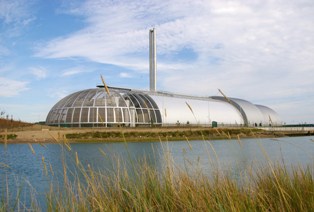The National Planning Policy Framework will bring into effect a number of changes intended to simplify the planning system, giving greater powers to local communities to shape planning decisions and put sustainability at the heart of local authority planning policy.

However, despite hopes that it might provide clarity on planning policy for the development of waste infrastructure, the waste sector will now have to wait for the publication of the governments National Waste Management Plan for England for any policy decisions relating specifically to waste management. This may not be published until the end of 2013 (see letsrecycle.com story).
Until the publication of the Plan, the DCLGs framework document states: Local authorities preparing waste plans and taking decisions on waste applications should have regard to policies in this Framework so far as relevant.
Sustainable development
The final copy of the document has retained a presumption in favour of sustainable development which prioritises the building of infrastructure seen as sustainable under the terms of the framework, for which the DCLG is keen planning consent is granted without delay.
The government drew criticism for its unclear definition of sustainability after the publication of the draft Framework in June 2011, (see letsrecycle.com story) and has sought to develop a stronger definition in the final Framework document.
Now, in order for developments to be classed as sustainable, a local authority will have to consider social and environmental and economic objectives, and: positively seek opportunities to meet the development needs of their area unless adverse impacts of doing so would significantly and demonstrably outweigh the benefits.
According to the DCLG, this presumption should be seen as a golden thread running through both plan-making and decision-taking by planning authorities but existing policies such as those protecting the Green Belt, sites of special scientific interest, national parks and other areas “cannot be overridden by the presumption” and, councils’ policies must encourage brownfield sites to be brought back into use.
Unveiling the Framework in Parliament today, Department for Communities and Local Government (DCLG) minister Greg Clark, said: A decade of Regional Spatial Strategies, top-down targets and national planning policy guidance that has swelled beyond reason to over 1000 pages across 44 documents, has led to communities seeing planning as something done to them, rather than by them.
And as the planning system has become more complex, it has ground ever slower. In 2004 Parliament required every council to have a plan – eight years on, only around a half have been able to adopt one.
ESA
The trade group for the waste management industry, the Environmental Services Association (ESA), has welcomed the measures set out in the framework, but warned that by deferring guidance on waste planning policy, the government risked causing a hiatus in waste planning approvals.
ESA planning advisor, Stephen Freeland, said: ESA welcomes publication of the Governments overarching planning policy which rightly places sustainable development at the heart of the planning system.
Waste management infrastructure has a pivotal role to play in meeting the Governments objectives for sustainable development by supplying renewable and low carbon energy and delivering carbon savings through recycling.
Veolia
Robert Hunt, executive director of waste management firm Veolia Environmental Services, said: To accelerate the UKs growth encouraging investment in key infrastructure is essential, not optional. Todays announcement in favour of sustainable development will help green light projects with extremely positive economic and social outcomes by creating real and positive employment in local communities.
Just as the major 19th century industrial projects created wealth and social advancement so too will key investment in Britains key service infrastructure. We must compete with our European neighbours and these simplifying reforms will help to reposition the UK as a vibrant economic hub.
The business lobby group Confederation of British Industry (CBI) which represents businesses from all sectors, also welcomed todays announcement, saying that the planning policy could act as a spur to growth for businesses.
Related Links
CBI director-general John Cridland, said: Future generations will be thankful that the government has held its nerve on this. Having a presumption in favour of sustainable development gets the balance right between supporting jobs and growth, and serving the interests of the environment and society.
Lets be clear, this is not an invitation to concrete over Britain as some would have us believe. For too long, our planning regime acted as a drag on growth, and this framework lets people decide the future for themselves.








Subscribe for free